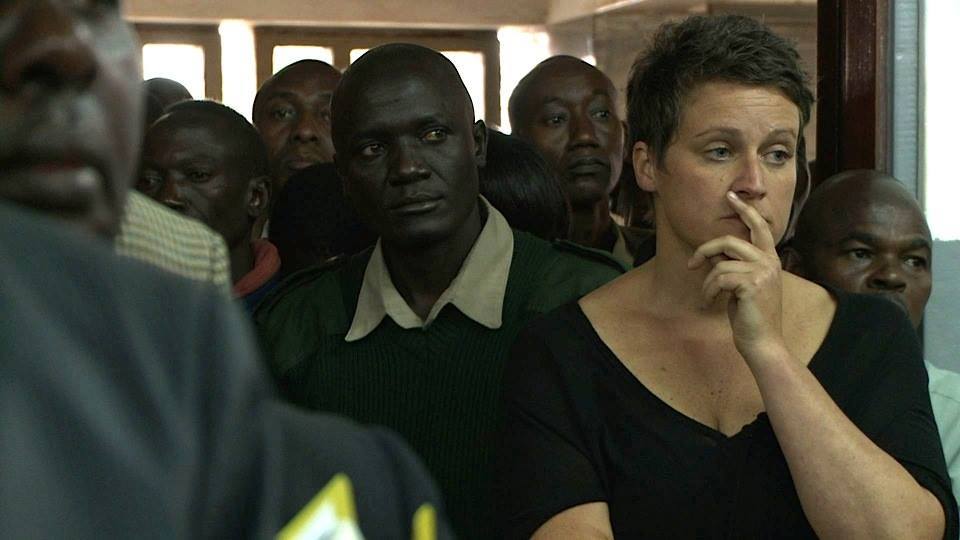
I will not be silenced
After she was gang-raped in her Lang’ata residence, Charlotte Campbell-Stephen was told she’d be best off going back to her native Australia.
But she stayed in Kenya and fought for justice. Her court case took 7.5 years. Charlotte documented her journey in an award-winning movie. She also took the time to answer a few questions from Love Matters.
- After you were raped, what made you start fighting?
Justice was my motivator. I had no idea when I began the court case what I was in for. I just kept going forward no matter what obstacles reared up. When you are driven by a sense of justice you soldier on.
- How often were you close to giving up?
It took seven-and-a-half long years but I never questioned why I was doing it. My belief got stronger when I realized that this fight was so much bigger than just me. That’s what kept me going. And because of this, I never thought about giving up. Of course, I had my moments when I was completely frustrated by the judicial processes but you get up, dust yourself off and keep going because it’s important.
- What gave you the strength to continue fighting, even with the obstacles you faced?
When you believe in your truth, the courage to stand by it comes easily. Over the years, courage came when I least expected it when I had to dig deeper and deeper into myself to continue to fight for my truth. Backing down and walking away was never an option. I believed in myself, my right to justice and most importantly breaking the silence on this issue so that others can also step forward and do the same.
- Did you have positive experiences during your fight?
Knowing that change can and will happen – watching and hearing more and more people speak out about rape, more survivors reporting to police stations and testifying in court. This inspires me and it makes those long years pale in comparison.
I was raped, it happened and it is a part of my life forever, a violent blueprint. To imagine my life without that now makes no sense at all. I continue to enjoy life with all its ups and downs and twists and turns.
I am inspired and enriched daily by the work, by the women I meet along the way who are courageous in challenging the patriarchal structures and are bravely facing this issue head on.
- Have you been able to move on?
Moving on is a very important step but it is different for everyone. I always took the time to listen and focus on what I was feeling and this was important for my healing process. Whether I was feeling sad, angry, strong I just gave myself the opportunity to sit with those feelings and honour them. We can’t run away from anything we feel, it will be with us always but over time, this becomes less and less.
During the court case, I did see a psychologist who helped me with my feelings when they got overwhelming. I learned about managing them so that I could stay strong, focused and continue to follow my path in seeking justice.
- What needs to change to serve survivors better?
While the Sexual Offences Act (SOA) is a very powerful tool I don’t think that it is being used effectively on the ground.
I feel very strongly that the protection of witnesses, the survivors of sexual violence, is crucial. By providing survivors support, they will feel valued, encouraged, and most of all heard and which helps with their sense of self.
We are slowly starting to eradicate sexual violence from our societies. This momentum will continue – voices will be raised and heard, Kenyans will no longer hide behind the silence because the reality is it could touch their families, their friends, and colleagues.
- What would your advice be to friends and families of rape survivors?
Unconditional love is all that is needed; an ear when the survivor feels that he or she is ready to talk it out; a shoulder to lean on through tough and traumatizing times. No blaming, no victimizing, no shaming. The survivor will go through many emotions; friends and family need to try and move with this and be tolerant. Survivors will need to be supported emotionally, mentally and psychically.
- What advice would you give women (and men!) who have been raped?
Understand that the rape didn’t happen because of who you are. It was never about who you are as a person.
Many women continue to live in abusive relationships because they don’t know where to get help. If you have questions about violence in a relationship, you can leave us a note below, or on the discussion board.
